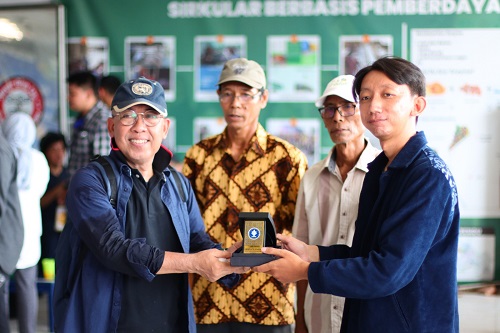Visit Pasaran Island, PSL IPB University Masters Students Learn the Dynamics of Independent Reclamation Island

Several IPB University Postgraduate School (SPs) students from the Masters Study Program (Prodi) in Natural Resources and Environmental Management (PSL) visited Pasaran Island. The visit of IPB University students to the island which is located in East Betung Bay, Bandar Lampung City is part of a field lecture activities series.
"The purpose of this field study on Pasaran Island is to obtain information about environmental conditions, especially related to existing community-based waste management," explained Prof Hadi Susilo Arifin, Head of the PSL SPs Masters Study Program IPB University.
According to him, Pasaran Island is interesting to be a field trip destination for PSL IPB University Masters students. The island which originally only had an area of 4 hectares, in a dozen years has become 14 hectares due to independent reclamation. The majority of the population work as fishermen and fish processors. Most of them are fishing families originating from Indramayu and Cirebon.
Meanwhile, Prof Erliza Noor, lecturer at the Masters Program PSL SPs IPB University explained, with this field visit, students can see firsthand how the environment is managed on Pasaran Island, especially in the coastal environment. He said one of the things that bothered him was the trash around the island. This waste problem is very complex, therefore it must be managed and minimized at its source.
"Our task is how to involve the whole community in managing this waste, so that they feel they have a sense of belonging and responsibility. The waste is not only a person's duty but all who contribute. Therefore, there needs to be collaboration between the government, universities and the community," she said.
Also involved in the field lecture, Dicky Dwi Alfandy is one of the activists in the Gajahlah Kebersihan community. He explained, Gajahlah Kebersihan is an environmentally concerned community in Lampung which was established in 2021. One of its programs is research related to household waste that is produced and used as data to make innovations.
"Every day there is garbage collection which will then be dropped at the recycling innovation house which will be converted into an eco-roster, namely concrete ventilation which comes from chopped plastic waste, so that it can benefit the surrounding community," he concluded. (HBL/Rz) (IAAS/Hap)



